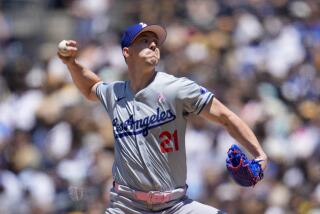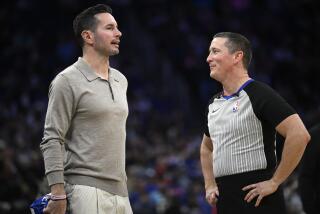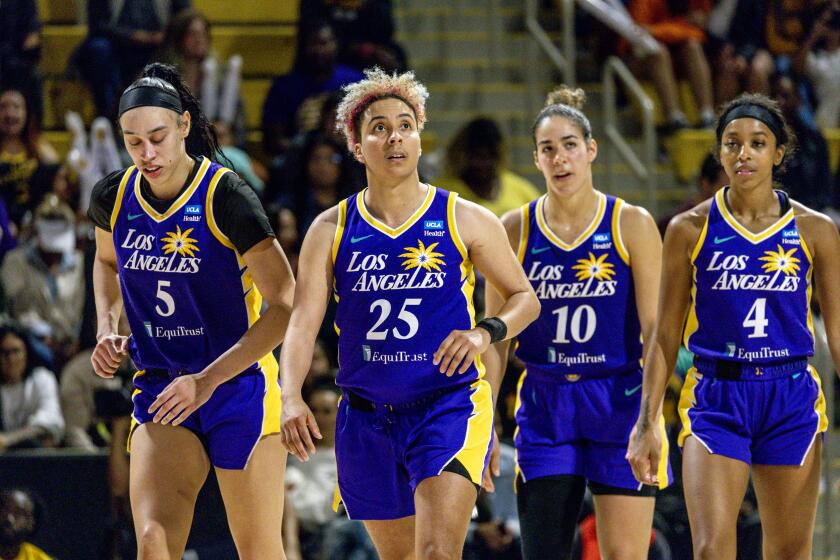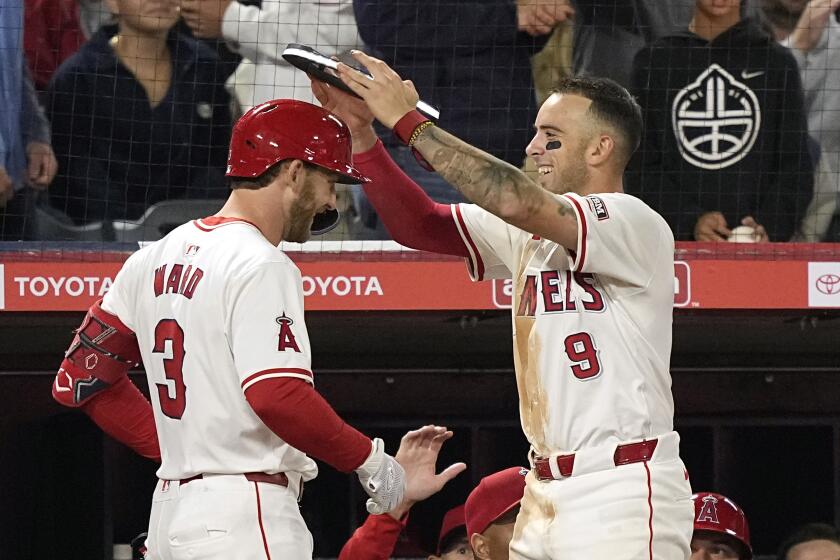The Braves Sure Invited a Lot of Empty Seats
They say there is no peace in the playoffs.
They say the best thing about baseball’s postseason is that, for three splendid weeks in October, there is nowhere to run and no room to breathe.
They are wrong.
On Friday night, I found it.
Turner Field, sixth inning, aisle 244, row 8 just above left-center field during the game between the Arizona Diamondbacks and Atlanta Braves.
No peace? I had the entire 21-seat row to myself.
Nowhere to run? In a section with a couple of hundred seats, there were a couple of dozen folks.
You could run steps. You could run to an empty bathroom, run through an empty beer line, then return to your seat before missing any of that high school football game on your radio.
You could even do what most of Atlanta was not doing, watching the Diamondbacks defeat the bumbling Braves, 5-1, to take a two games to one lead in the NLCS.
Which now officially stands for the Nobody’s Looking championship series.
The loneliest place in the sports world Friday was a prime outfield seat at its showcase game.
One of the three biggest events in the baseball calendar, and only one of three games has sold out.
“It was very weird,” said Diamondback left fielder Luis Gonzalez. “I looked up, and there wasn’t anybody above me.”
The official attendance was 41,624 in a stadium that seats 50,091.
But there appeared to be twice that many empty seats, the most in recent memory--maybe ever?--for a postseason game.
“I mean, this was a huge game,” Atlanta reliever Steve Reed said. “I understand how winning has become old hat down here, and I don’t want to rip the fans ... so I don’t know.”
This probably should be a story about Arizona pitcher Curt Schilling, who is having one Bulldog of a postseason after his third consecutive win, giving up two earned runs in his last 27 innings.
He’s the first pitcher since Orel Hershiser to throw three consecutive complete games in the postseason.
“Any time you get mentioned in the same breath as Orel, who was as good a big-game pitcher as anybody I ever saw, it’s an honor,” Schilling said.
But watching him pitch in front of all those empty seats, you thought, how big can this game be?
“This is ridiculous,” said Nancy Lawrence, one of my fellow aisle 244 loners. “This is a big playoff game and look at it!”
Lawrence drove here with family and friends from Birmingham, two hours away.
She knew it would be a different sort of game when her sister was able to buy a seat only 20 rows up from the third-base line 90 minutes before the game.
And with no line.
She also knew it would be a different sort of game when her sister paid $60 for a seat that usually costs half that.
“You just can’t increase prices like that and expect people to pay them,” she said.
There were similar complaints in Arizona, where there were nearly as many empty seats for the series opener.
Since baseball raised the postseason prices several years ago, championship crowds in some towns have slowly decreased.
One wonders how long before we start seeing these empty seats at a World Series game, at which point baseball’s reputation as our national pastime will become permanently erased.
“I’m into comparisons,” said Commissioner Bud Selig on Friday. “And by comparison, our playoff prices are certainly not out of line with other sports.”
Yet what other mostly outdoor sport drags its playoffs from warm weather to cold weather?
What other sport begins its playoff games later than its regular-season games, meaning many of these increasingly endless contests end just before midnight in the East?
It was no coincidence that, of the few people roaming the concourses Friday, few were children.
Considering his sport sold its soul and choice of starting times to television, Selig can’t say anything about that.
But he does agree that the finishes are far too late.
“We really need to work on that,” said Selig of the length of games. “All the hitters stepping out, the pitchers pawing the mound.”
Of course, he has said that before.
Change in baseball occurs as slowly as a Chuck Knoblauch plate appearance.
This is why some of those who were there Friday would never dream of paying for the privilege.
“We wouldn’t even be here if somebody didn’t give us tickets,” said Gary Ganczarski, an Atlanta attorney and another Aisle 244 loner. “There is no buzz in this town about this at all.”
Still ... the National League’s arguably best pitcher against the most successful National League team in the last 10 years in the most important National League series of the season?
And it feels like a spring training game?
“Hey, we’ll take it,” Gonzalez said. “To not have a full house, that’s better for us. That way, they didn’t have a home-field advantage.”
The Braves rarely have a home-field advantage. This year they became the first team in baseball history with a losing home record (40-41) to advance to the playoffs in a non-strike-shortened season.
“Yeah, but tonight could have been a sellout and Schilling still would have taken the fans out of the game,” Diamondback Mark Grace said.
Maybe. But it would have been nice for Schilling to have that chance.
The fans were gone before he ever showed up. So, too, was another tiny bit of baseball’s ever crumbling mystique.
*
Bill Plaschke can be reached at bill.plaschke@latimes.com.
More to Read
Get our high school sports newsletter
Prep Rally is devoted to the SoCal high school sports experience, bringing you scores, stories and a behind-the-scenes look at what makes prep sports so popular.
You may occasionally receive promotional content from the Los Angeles Times.







